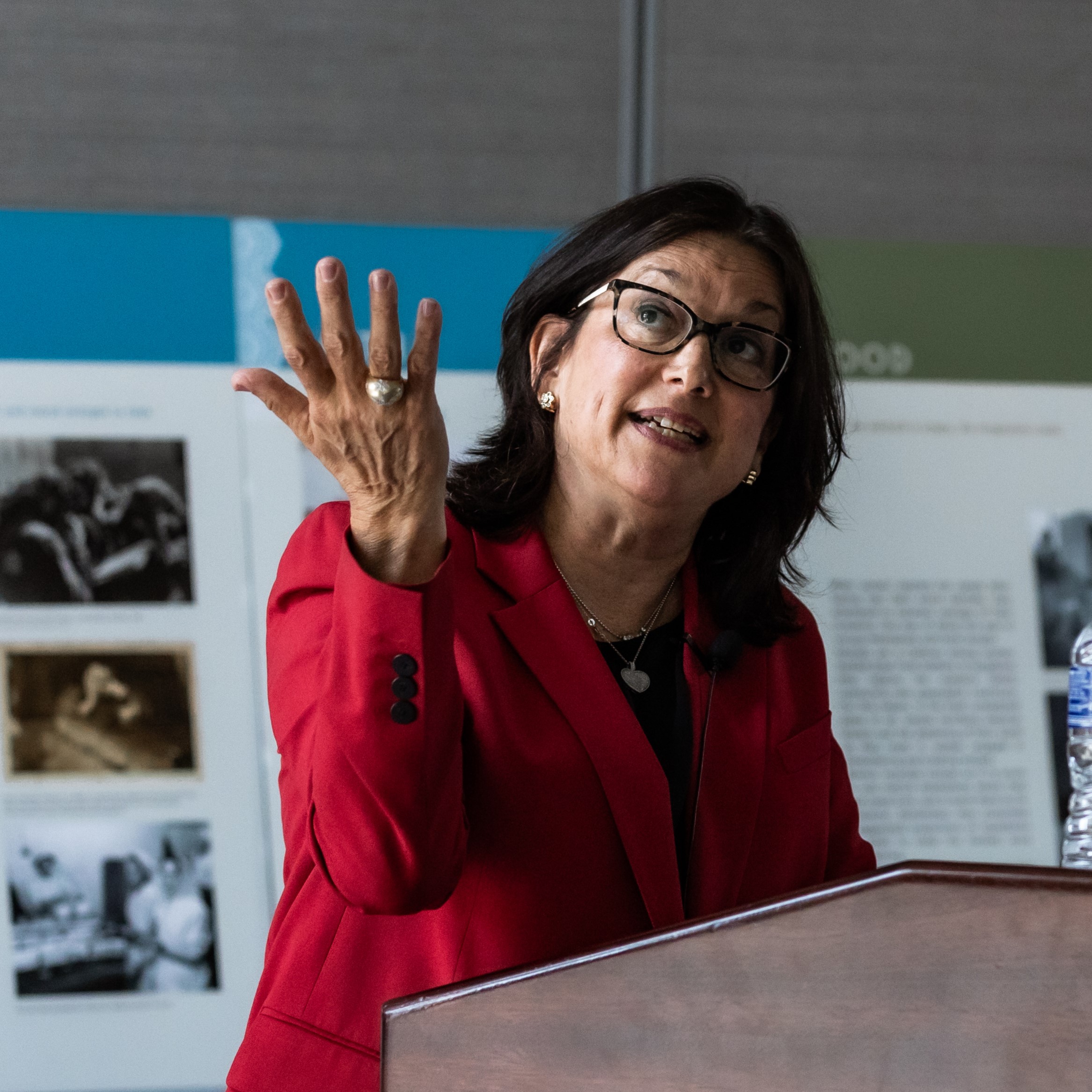Dr. Marlene Yahalom

Marlene Warshawski Yahalom, PhD, is the former Director of Education for the American Society for Yad Vashem. In that role, she was responsible for educational outreach and programs, professional development, teacher training and traveling exhibitions to raise the public’s awareness of the lessons of the Holocaust. She serves on the Education Advisory Board of the Rose and Sigmund Strochlitz Holocaust Resource Center, Jewish Federation of Eastern Connecticut, and PRISM: an interdisciplinary journal for Holocaust educators. Dr. Yahalom earned her Ph.D. in Sociology from Columbia University. Her thesis is on “The Role of Archives in Remembering the Holocaust: a Study in Collective Memory.” She also taught courses on the Holocaust - History and Collective Memory of the Holocaust, and Holocaust, Law and Human Rights. Dr. Yahalom is the child and grandchild of six Holocaust Survivors.
Critical Thinking Questions:
- Dr. Yahalom tells the story of a Pole who refused to help murder her Jewish relative. Why do you think some non-Jews refused to participate in the murder of the Jews, while others agreed to participate? Why did some non-Jews who knew what was happening to their Jewish neighbors not speak-out and object? Consider historic, social, economic, and religious motivations.
- Dr. Yahalom explains that her father was hidden as a child in a Belgian monastery. What challenges do you think were involved for him? For his parents? For the rescuers?
- Dr. Yahalom says that her father joined the Belgian Resistance as a teenager. Consider what a day in the life of a teenage member of the resistance might look like. What kinds of acts did they engage in? What were the risks? Why did children join the resistance?
Writing Prompts:
- Write a short essay that explores the experiences of Jewish children during the Holocaust. What challenges daily challenges did they face? In what ways did they cope with living in the ghettos, or as hidden children?
- Dr. Yahalom’s concluding message for students is to have tolerance and understanding for people, and to be very wary of hatred and discrimination. In a short essay, reflect on this message. In what ways can you as an individual uphold the responsibility of practicing tolerance and understanding for people? In what ways can you become an upstander for those around you?
